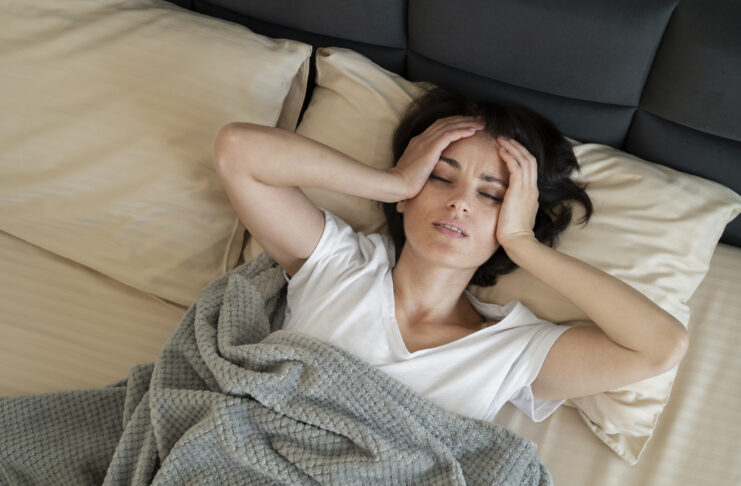Insomnia is a widespread form of sleep disturbance that impacts millions of people all over the world. If it is not treated, it can result in a wide variety of health issues, such as exhaustion, mood swings, impaired cognitive function, and even more serious medical diseases. The good news is that there are a number of effective treatments available for insomnia that can assist you in getting back to sleeping normally and improve your overall health and wellbeing. In this article, we will discuss three of these alternatives that have the potential to make a meaningful improvement in the quality of your sleep.
Cognitive Behavior Therapy for Insomnia (often abbreviated as CBT-I):
Cognitive Behavioral Therapy for Insomnia, or CBT-I, is a structured approach that has proven to be highly effective in treating insomnia. In most cases, it is carried out by licensed mental health professionals. Depending on the severity of the individual’s ailment, the treatment could last as few as two sessions or as many as eight sessions.
Unlike medication, which may provide only temporary relief and carry the risk of dependence, CBT-I aims to address the root causes of insomnia and improve sleep quality over the long term.
The goal of this method is to train your brain to link the bed with sleeping rather than being awake. It entails going to bed just when you feel like sleeping, and getting out of bed if you find yourself unable to do so.
In addition to this, it involves several relaxation techniques, such as progressive muscle relaxation, deep breathing, and mindfulness, in order to alleviate symptoms of anxiety and encourage sleep.
In addition to this, those who participate in CBT-I receive education regarding appropriate sleep habits and routines. This includes maintaining a consistent sleep schedule, creating a comfortable sleep environment, and avoiding stimulants and electronics before bedtime.
Modifications to Your Lifestyle and Behavioral Patterns:
In some cases, making relatively minor adjustments to your lifestyle and altering the patterns you follow on a daily basis can considerably reduce the symptoms of insomnia. For example, engaging in regular physical activity, preferably earlier in the day, can help regulate sleep patterns and enhance the overall quality of sleep. This is especially true for people who have trouble falling or staying asleep. However, if you must exercise vigorously close to bedtime, you should try to avoid doing so because it may have a stimulating impact.
In addition to getting regular exercise, you should also pay attention to the foods you eat and the times at which you eat them. Avoid heavy meals, caffeine, and alcohol close to bedtime. If you find yourself hungry right before bed, choose a snack that is low in fat and high in nutrients.
Make an effort to cut back on your screen time. This is because the blue light that is released by electronic devices such as smartphones, tablets, and computers might cause your body to produce less melatonin, which is a hormone that is responsible for regulating sleep. Therefore, refrain from using screens for at least an hour prior to going to bed.
Apart from these, light therapy boxes have also proven effective in treating insomnia. They emit natural sunlight but without harmful UV rays. People who suffer from seasonal affective disorder (SAD) or circadian rhythm abnormalities may find that they are beneficial to utilize. They have the ability to improve the quality of sleep as well as help regulate the internal clock of the body.
Medication and Vitamins and Minerals:
Medication and nutritional supplements should only be explored as treatment options in the event that other non-pharmacological methods prove unsuccessful. However, prior to utilizing any prescription or supplement for sleeplessness, it is absolutely necessary to speak with a qualified medical practitioner.
In this scenario, drugs such as benzodiazepines and other types of hypnotics that do not contain benzodiazepines can be useful in the short run. However, they can cause dependence, thus they should only be used with caution and under the supervision of a medical professional.
Some over-the-counter sleep aids contain antihistamines that can induce drowsiness. It is recommended that you do not rely on them as a long-term remedy; however, they are usually regarded as safe for occasional use.
Melatonin supplements are sometimes recommended by medical practitioners as an additional treatment option. Melatonin is a hormone that controls the cycles of sleeping and waking up. Thus, melatonin supplements can be helpful for people with circadian rhythm disturbances. Consult a healthcare professional for the appropriate dosage and timing.
Insomnia can have a profound impact on your quality of life and overall health. It is possible for it to result in conditions such as anxiety, depression, obesity, hypertension, and a variety of other similar ailments. The good news is that you can treat your insomnia with any one of a number of effective remedies, which will help you get back to sleeping normally. Among these include alterations to one’s way of life, physical activity, and medication. However, the technique that is most appropriate for a given individual may differ from that of another person; hence, it is vital to speak with a healthcare professional in order to determine the therapy that is most appropriate for your individual requirements.

